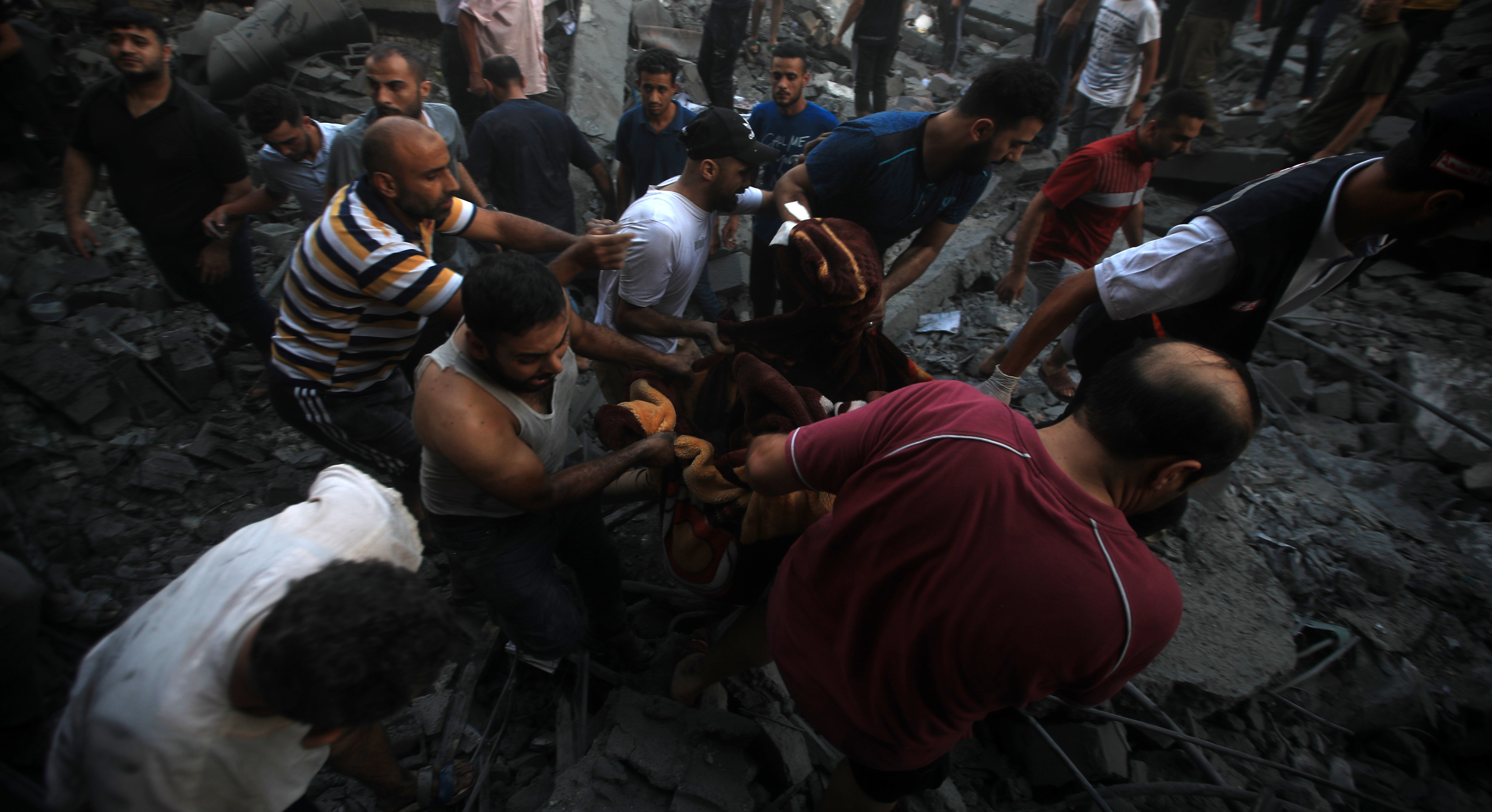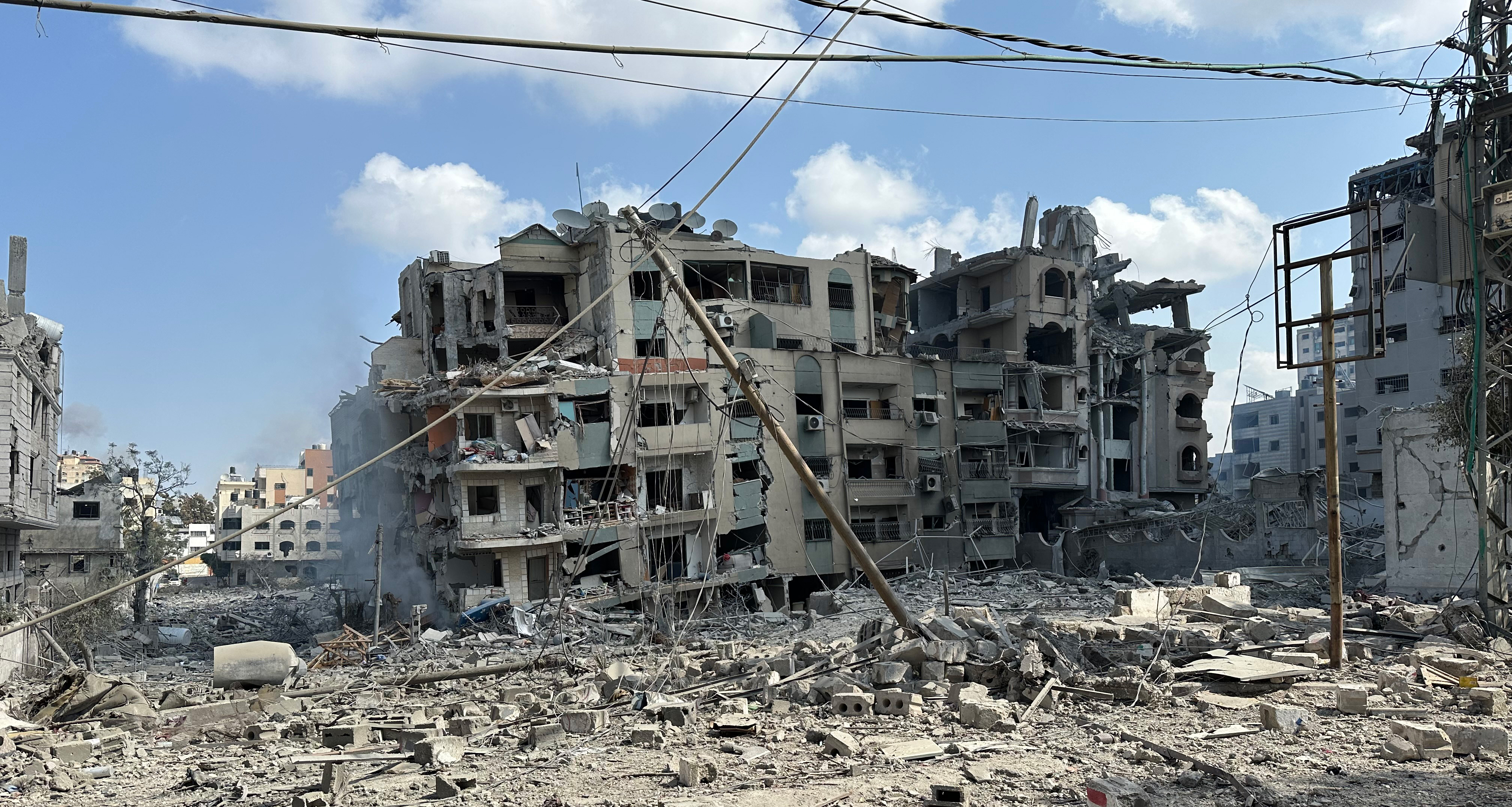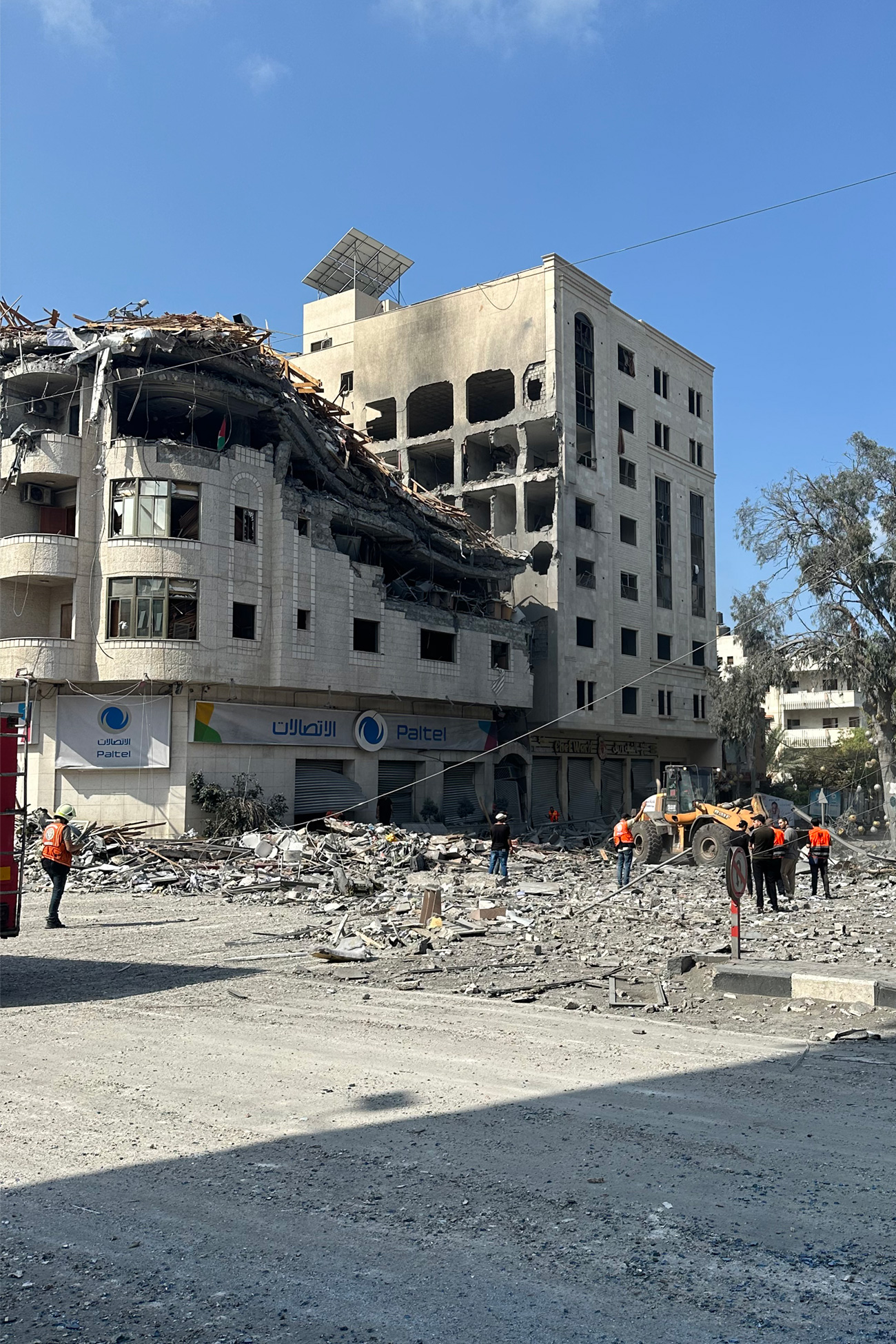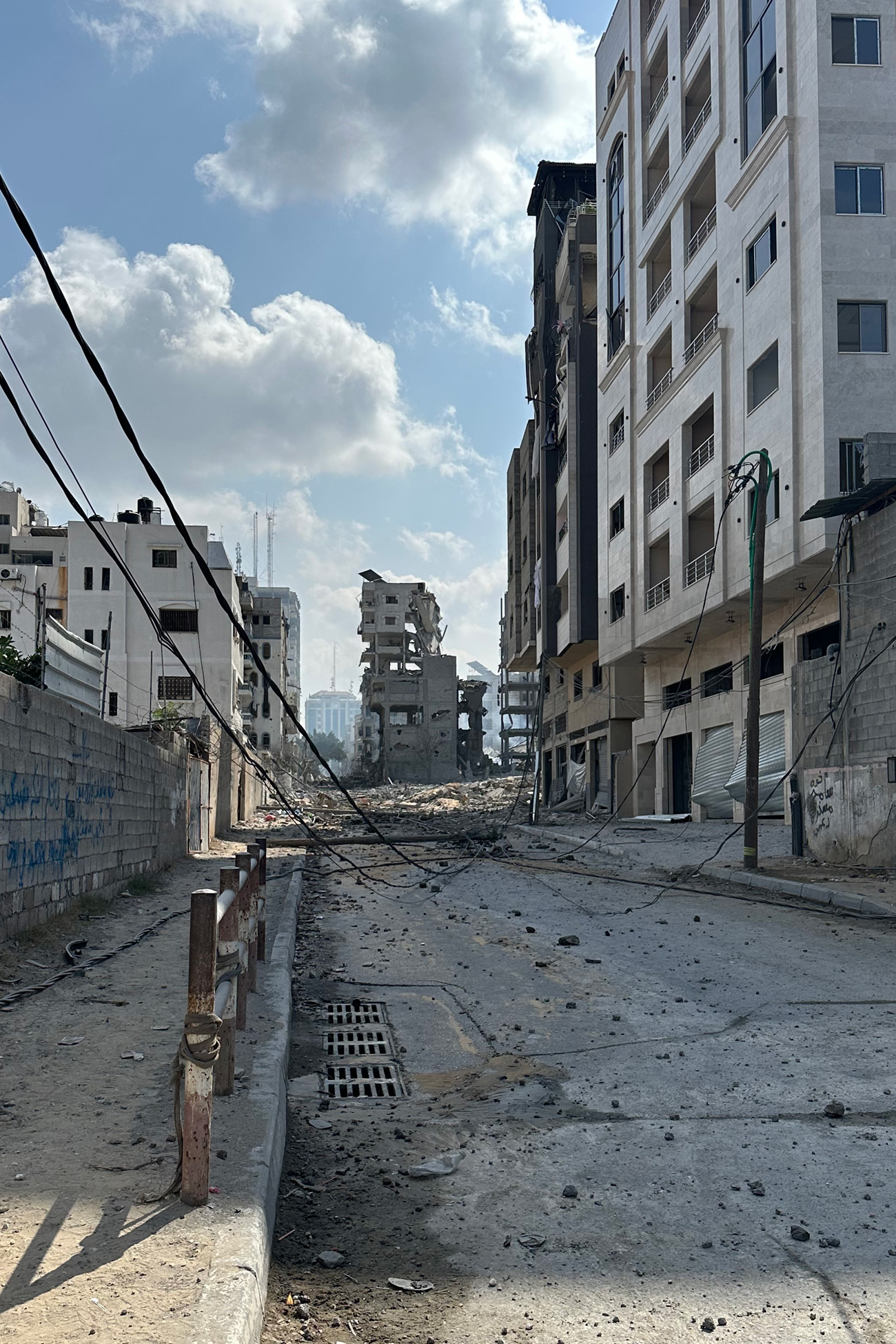Appeal for respect of Humanitarian Law in Gaza
Médecins du Monde is shocked and expresses its sadness and deep concern at escalating violence in both sides and the increasing number of civilian deaths over the past 10 days in Israel and in Gaza Strip.
Hundreds are dead after the bombing of a hospital in Gaza where thousands of civilians had taken refuge on the night of 17 October. MdM calls on the Israeli and Palestinian authorities to respect and apply international humanitarian law in the face of escalating violence on both sides, after the deadly attack on Israeli territory on 7 October.
The Israeli army has massively bombed the Gaza Strip, killing more than 3,000 people and wounding nearly 12,500, while more than 1,300 people have died in Israel. The situation in the West Bank is very precarious and tense.
According to a recent report by the UN Office for the Coordination of Humanitarian Affairs, more than 98,000 homes (25% of all homes in Gaza) have been destroyed. In addition, there have been 59 attacks on health care facilities, including 26 health facilities and 23 ambulances.At least 491 people have been killed in these attacks, including 16 on duty, while 28 were injured. Also 170 schools have been hit, while the water and sewage network in the Gaza Strip has been severely damaged.
MdM warns of the critical situation, which threatens the lives and health of hundreds of thousands of people in what is already considered the deadliest year for Palestinians in the West Bank according to UN figures since 2005 to date.
Securing the humanitarian corridor and protecting civilians
MdM collectively condemns attacks against civilians and any action that violates International Humanitarian Law. We call for the unconditional protection of humanitarian and health personnel working in the field in all circumstances, as well as the protection of all health infrastructure and access to it, in accordance with the International Humanitarian Law.
The situation in Gaza is out of control and there is a lack of humanitarian access. Tedros Adhanom Ghebreyesus, Director-General of the World Health Organization (WHO), said that “the health situation in Gaza was getting out of control, and we are suffering casualties every second we wait to deliver medical aid”, adding that the medical supplies have been waiting at the border for 4 days.
Humanitarian Aid
Under the Geneva Convention, the parties involved must ensure that the health needs of the civilian population in the occupied territories are met. Therefore, the Israeli government must respect and allow humanitarian access to areas where civilians reside. Such access is essential to allow the availability of essential medical supplies, the transit of medical teams and humanitarian personnel and the exit from the Gaza Strip of patients in need of immediate health care.
At the same time, both warring sides must work to find peaceful solutions including the immediate release of civilians held hostage by Hamas and an end to hostilities against the Israeli population.
MdM also points out that the basic needs of the Palestinian population are very largely covered by international humanitarian aid. Any suspension of this aid further exacerbates their vulnerability.

MdM, who has been working in the region since 1994, are concerned about the impact that this escalation of the conflict may have on the health and well-being of the civilian population, as well as on the capacity of the health system to cope with the risk of overloading clinics and services.
The Gaza Strip has suffered a protracted crisis for more than 16 years. The population of Gaza has been exposed to various military escalations, notably in 2007, 2012, 2014, 2021 and now 2023.
MdM delegations and branches around the world are organizing and readjusting their actions with the primary goal of safeguarding their teams as much as possible during humanitarian assistance.
Médecins du Monde provide their assistance in coordination with institutional actors, the UN and other civil society actors.


